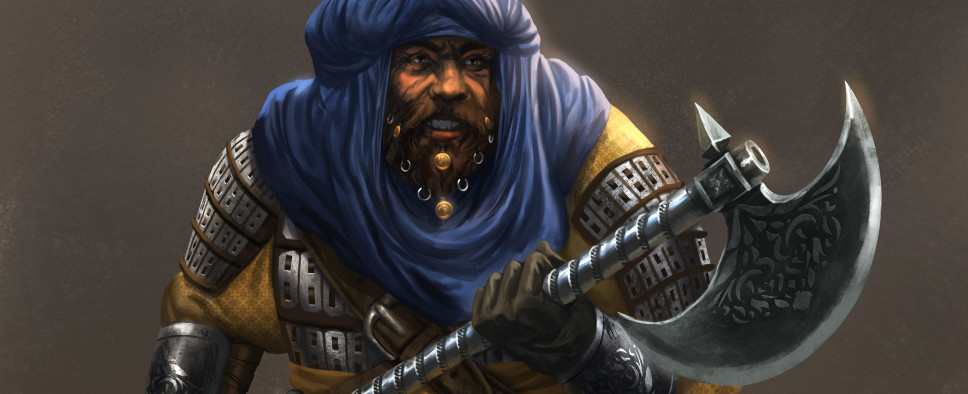Seven Dragon Saga Update #10, $96,698 and Counting
-
Category: News ArchiveHits: 1820

The latest Kickstarter update for Seven Dragon Saga offers new information on character specialties and is penned by the lead designer on the project, David Shelley. Here's an excerpt (note: I have made some edits to the original formatting to make the excerpt more readable):
Where Race give shape to the character, innate toughness, mobility, senses, and link to the mystical; and Class defined the character's core features; Specialty gives it a final direction. Experimenting with the three pieces is quick and fun, and generates interesting synergies. Here is an overview of the Specialties.
Deadly. Extra attacks during the encounter, extra damage, increases to the statistic used for damage, and the Mystic Leap ability to get to where you need to deal damage. Did I say damage often enough? Works well with any character you don't want focused on support.
Tactical. Some damage support, but more importantly, it gives a character access to all the weapons in the game. Prefer your Knight to be sword and board? Make him a Tactical Knight. Want the Scout to be up close and personal with blades? Make him Tactical.
Fast. The best Mystic Leaping range of any class, lots of teleports, some extra actions to get extra movement. If you want the character to get where the enemy is weakest, or kite the slow beast, then Fast is a good choice. Shade Elves and Half Shades have an innate Flash Step, which can complement Fast, while the dragonkin races have Surefooted, meaning they ignore difficult terrain.
Priestly. This is an overall control and support Specialty. Some healing, anti-magic, harm undead, pin, leadership, a few talismans to toss around, and some good social skills make this an all-around useful choice. Priestly Soultenders get very strong heals, while Priestly Wraith Hunters have the best harm undead. A Priestly Wizard can both cast spells and cancel other magic (including breath weapons and such).
Defensive. Lots more hit points, harder to hit in combat, luckier, and the powerful deflection ability, increase the character's survival significantly. Best with Classes using light armor, heavy armor characters still benefit.
Tough. A bit of healing, good hit points, some protection from Trauma, better statistics, and the taunt ability to guide the enemy to this more survivable character. An obvious choice with heavy armor, though hardly useless to light armor characters.
Rogue. This Specialty provides the classic thief skills of streetwise, lockpick, traps and bluff. Harder to hit, an emphasis on dexterity, leaping capability, make the character mobile. A few talismans provide some mystical firepower (think grenades, and pools). A natural to combine with the stealthy Scout, and/or the Doorwalking High Elf, it adds some style to other characters. Who says the thief need to be the squishiest? A Rogue Knight can handle both traps and ambushes while out on point.
Noble. Another leadership, evasive Specialty, with the skills of the court: seduction, socialize, politics and bureaucracy. So, in combat, better survivability, and some support feature. With diplomacy, the critical skills to thrive. The seven elements. These seven allow any character to have proficiency to cast spells. It further allows Wizards to cast the most powerful spells, and at a longer range. Some teleport ability allows them to move about the battlefield. Weapon users can benefit from using spells to add elemental damage. See my discussion on magic for the feel of each element.

